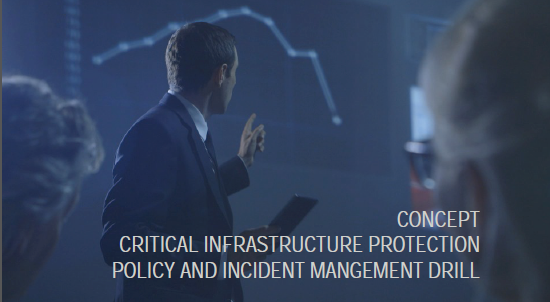The International Telecommunication Union (ITU) in collaboration with the Ministry of Defence of Thailand, and the National Broadcasting and Telecommunications Commission of Thailand (NBTC) are co-organizing the "Cyber Incident Simulation and Conference on Critical Infrastructure Protection" on Monday 23 November 2015 at Hotel Centara Grand at Central Ladprao, Vipavaodee Ballroom C.
For more information, please contact - Mr. Wisit Atipayakoon (wisit.atipayakoon@itu.int). Registration can be done online or by completing the form ( download the form), and send the completed form to the person indicated in the form before 19 November 2015.
download the form), and send the completed form to the person indicated in the form before 19 November 2015.
Cybersecurity and Critical Infrastructure Protection
Cybersecurity is paramount for sustaining a technologically-sound model. The disruption of electricity or the impairment of financial systems through interference with ICT networks is a reality; these events constitute national security threats. Malicious online agents are numerous, organized and of diverse persuasions: political, criminal, terrorist, hacktivist. The tools at their disposal become more sophisticated and complex over time and with experience; the growing number of connected platforms only serves to offer new attack vectors. There is no going back to simpler times. In embracing technological progress, cybersecurity must form an integral and indivisible part of that process.
Unfortunately, cybersecurity is not yet at the core of many national and industrial technology strategies. Although cybersecurity efforts are numerous, they are eclectic and dispersed. Information sharing and cooperation are key to tackling cross-border threats. Such elements require a certain measure of organization in a multitude of disciplines: legal, technical, educational. While a particular country or a specific sector will have developed and adopted a highly effective cybersecurity framework, the knowledge is rarely shared outside of that circle.
Cyber Incident Simulation

Data espionage, attacks against computer systems/critical infrastructure and data manipulation – the range of Cyber attacks is extensive. But how precisely do offenders attack government institution? How can ministers or directors ensure that they remain calm and initiate the right counter measures, that actually decrease and not further increase the risks? Out of all the decisions that have to be taken in such situation – which are the once that are in the responsibility of the head of a ministry?
All those questions are discussed for decades. Cybersecurity is on the agenda of various conferences the topic of numerous publications. But there is a difference between hearing a presentation about threats of Cyber attacks and actually experiencing such attack. This is precisely the aim of the Cyber Incident simulation – to allow the participants to experience realistic Cyber attacks and challenge their ability to response. Within this exclusive format, that usually takes between 2-3 hours, top decision makers in government institutions have the unique opportunity to find out if they are ready to go on the defensive. Will they develop the right strategy to counter the attacks? Will they be able to differentiate between topics that need to be referred to others and those that can't be?
 Video clip about simulation
Video clip about simulation